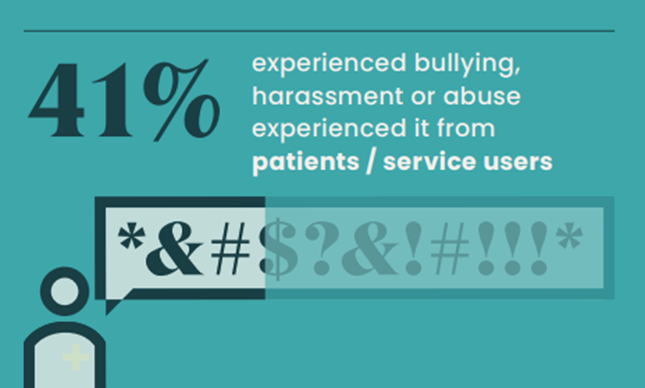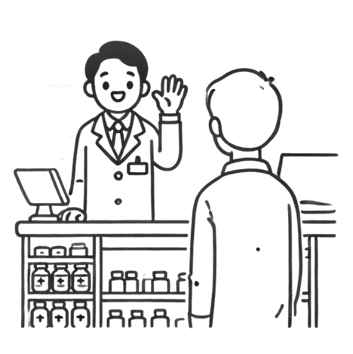Dealing with Difficult Customers
Before we start looking at dealing with customer behaviour let’s look at how we can look after ourselves too. Dealing with difficult customers can have a significant impact on how we feel, and it is important that we acknowledge this and have strategies for dealing with it.
First of all – you are not alone!
According to the Royal Pharmaceutical Society Workforce Wellbeing Round Table Summary 2024 41 % of respondents experienced bullying, harassment or abuse from customers.
More worryingly 24% of respondents experienced some kind of discrimination from customers.
Don’t keep your feelings bottled up, use your support network to discuss how you feel. Your colleagues are a great source of support so talk to them as they experience the same issues as you do. If you are unable to talk to your colleagues then talk to friends or family or a professional organisation such as Samaritans.
Make sure that you aren’t breaching confidentially when you have these conversations and never have them in front of other customers.
Secondly – don’t take it personally
Relationships with customers are a professional relationship and when customers are being difficult it isn’t you they have the issue with. You are the face of the pharmacy so unfortunately, they take their frustrations out on you.
Thirdly - don’t be afraid to ask for help
Sometimes the conversation with the customer will reach the stage where you cannot deal with the issue or communication has completely broken down. Hopefully a colleague will have noticed you struggling and offered to help but if not don’t be afraid to ask for support. Make sure you do this in a way that is discreet and maintains the confidentially of the customer. Also make sure you are using appropriate language especially if customers can hear you.
Sometimes you may need other forms of help such as a short break after dealing with a difficult customer. Don’t be afraid to ask for these either, looking after our emotional well being is important and has a direct impact on our mental and physical health.
Lastly – be prepared
When we experience difficult situations, it is better to be proactive rather than reactive. This means having a plan for the situation before it arises. Check if your place of work has a policy in place for dealing with difficult customers and that you know the different steps to follow. Ask your colleagues how they handle the situations before they arise. Knowing your customers can significantly help with this too as some may have particular needs that you can find out about beforehand.





